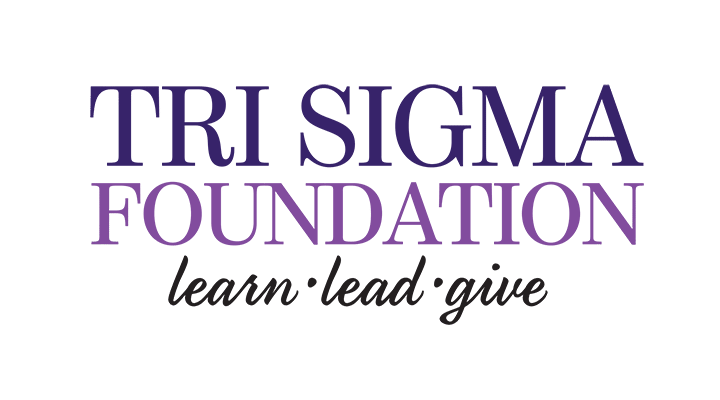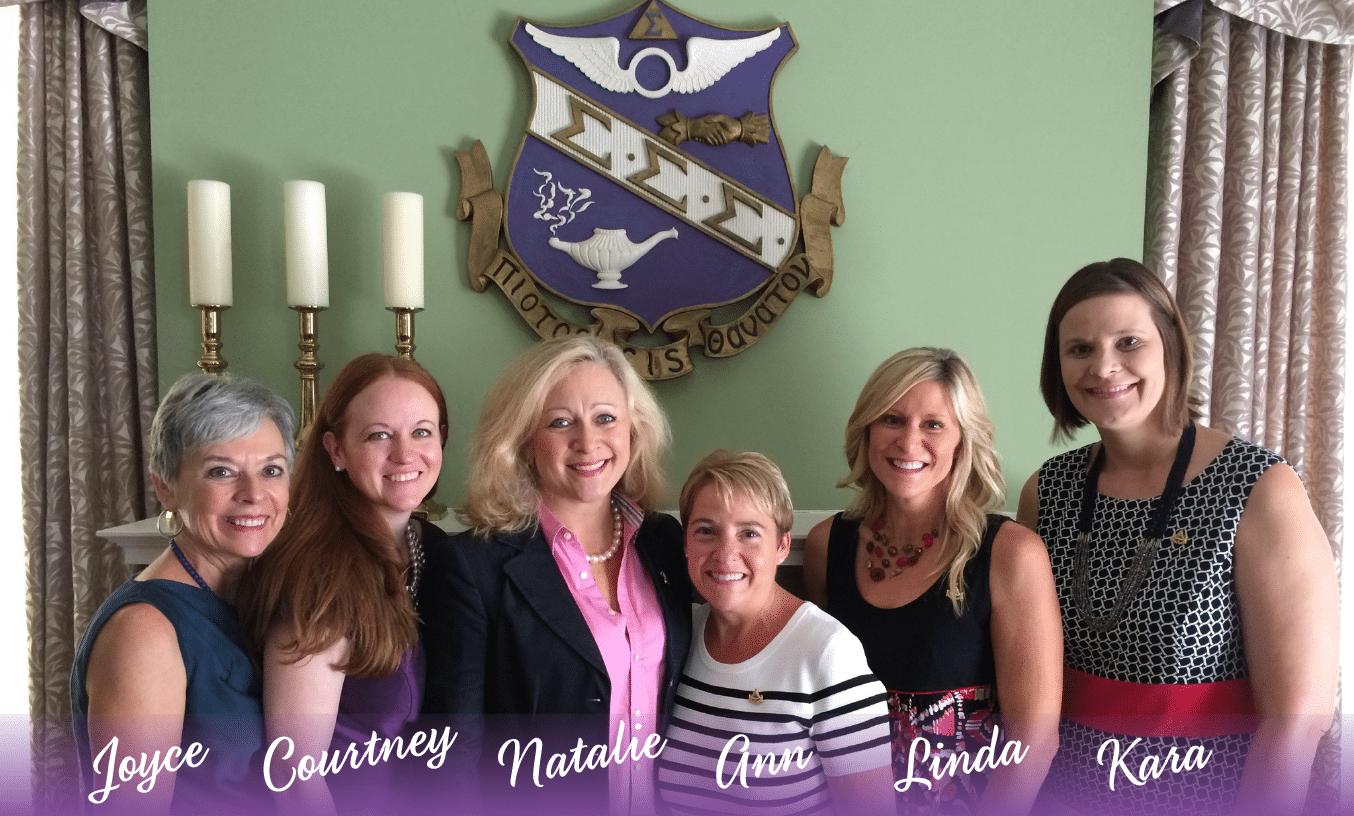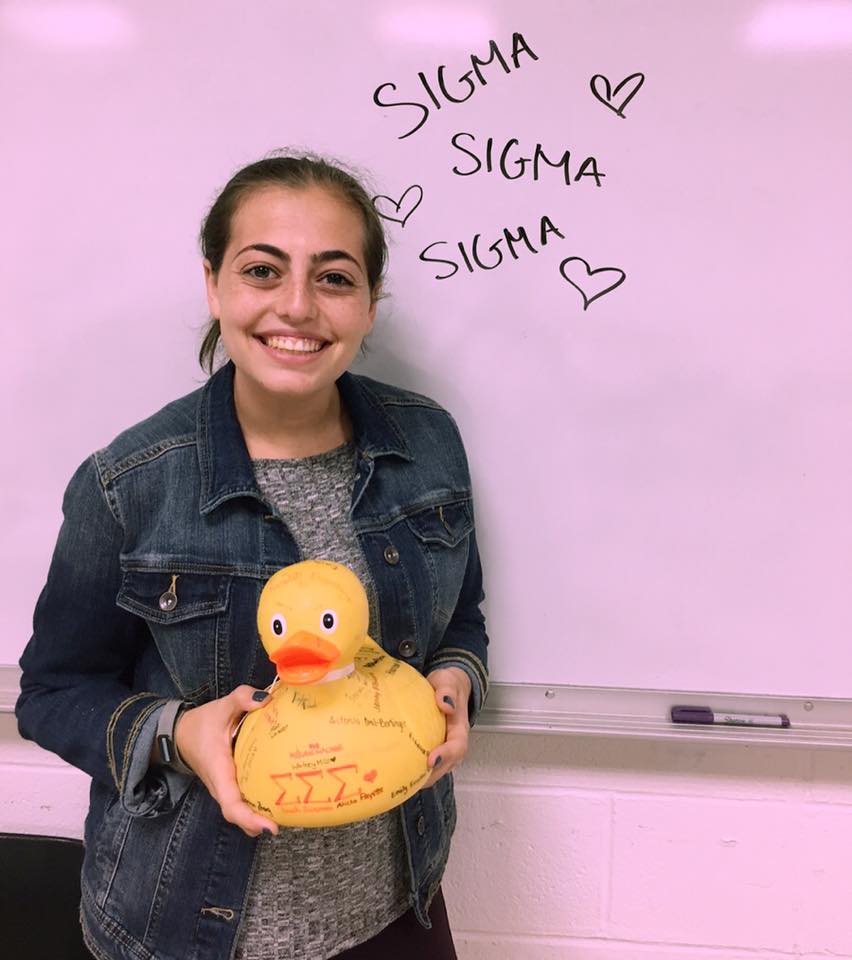Sigma Sigma Sigma is excited to welcome Katelyn Whitty, Caitlyn Westfall, and Kailea Marshall to staff. Katelyn will be serving in the newly created role of Director of Growth Initiatives, Caitlyn joins us as the Assistant Director of Education and Leadership, and Kailea will be serving as the New Chapter Coordinator.
 Katelyn Whitty, a member of Alpha Chi Omega Fraternity, brings experience from an extensive background in higher education and sorority operations. Katelyn holds a Master’s Degree in College Student Personnel Administration, and previously served five years as Alpha Chi Omega’s Senior Director. She most recently served as the Associate Director for Student Involvement at Spring Hill College in Mobile, Alabama.
Katelyn Whitty, a member of Alpha Chi Omega Fraternity, brings experience from an extensive background in higher education and sorority operations. Katelyn holds a Master’s Degree in College Student Personnel Administration, and previously served five years as Alpha Chi Omega’s Senior Director. She most recently served as the Associate Director for Student Involvement at Spring Hill College in Mobile, Alabama.
“We are excited to have Katelyn join our team to complement, augment, and enhance Tri Sigma’s efforts in extension and recruitment throughout the organization,” says Marcia Cutter, Tri Sigma’s Executive Director. “She has a proven track record in developing and implementing recruitment strategies and engaging members, chapters, and stakeholders.”
As Director of Growth Initiatives, Katelyn will be responsible for developing and delivering a comprehensive strategic and tactical plan for growth in the areas of extension, new chapter development, and membership recruitment. She will directly supervise all professional staff and national volunteers working with extension and recruitment, and will collaborate with others to seek out, recruit, hire, appoint, train, and motivate qualified individuals to advance and enhance the Sorority’s extension and recruitment efforts. Katelyn will be joining the Tri Sigma staff on May 29, 2018, and will report to the Executive Director.
 Caitlyn Westfall, a charter member of the Theta Gamma Chapter at McKendree University, currently volunteers for Tri Sigma as Theta Gamma’s Honor Council Advisor. Caitlyn graduated from Western Illinois University with a Master of Science in College Student Personnel, and has served the Saint Louis University fraternity and sorority community as the Program Coordinator for the past two years.
Caitlyn Westfall, a charter member of the Theta Gamma Chapter at McKendree University, currently volunteers for Tri Sigma as Theta Gamma’s Honor Council Advisor. Caitlyn graduated from Western Illinois University with a Master of Science in College Student Personnel, and has served the Saint Louis University fraternity and sorority community as the Program Coordinator for the past two years.
Caitlyn will report to Melissa Kolb, Director of Education and Training, beginning today. Melissa shares, “We are thrilled to have Caitlyn’s talents on our team and are certain that her personal and professional experiences will enable Tri Sigma to continue to provide quality programming that empowers members to live our mission. She enthusiastically braves new opportunities, and this drive will benefit Tri Sigma as we seek innovative ways to educate and inspire leaders.”
 Kailea Marshall is joining us from Southeastern Oklahoma State University, where she graduated with a Bachelor of Science in Occupational Safety and Health and was a member of the Zeta Gamma Chapter. She has been serving Tri Sigma for the past two years as a consultant within the New Chapter Department where she has been a vital member of the support team. While at Southeastern Oklahoma State, Kailea served as Panhellenic Vice President and Zeta Gamma’s Chapter President and Membership Recruitment Director.
Kailea Marshall is joining us from Southeastern Oklahoma State University, where she graduated with a Bachelor of Science in Occupational Safety and Health and was a member of the Zeta Gamma Chapter. She has been serving Tri Sigma for the past two years as a consultant within the New Chapter Department where she has been a vital member of the support team. While at Southeastern Oklahoma State, Kailea served as Panhellenic Vice President and Zeta Gamma’s Chapter President and Membership Recruitment Director.
As the New Chapter Coordinator, Kailea will partnering with the Associate Director of New Chapter Development as the lead for recruitment and retention for Theta Eta and Alpha Omicron. She will join the Tri Sigma staff beginning June 4th, and will report directly to Misty Fingar, Director of New Chapter Development.
Misty shares, “I am excited to add Kailea to the New Chapter Department as a permanent staff member. Kailea has been integral in the support we offer new chapters with special attention to recruitment and retention. Her positive, can-do attitude and excitement for membership in Tri Sigma is a welcomed addition as we continue to grow Tri Sigma’s sisterhood with new chapters!”
Please join us in welcoming Katelyn Whitty, Caitlyn Westfall, and Kailea Marshall to the Tri Sigma team! They can be reached at kwhitty@trisigma.org, cwestfall@trisigma.org, and kmarshall@trisigma.org.
Read more >




 Mr. Fair and Ms. Wilson will be working with Tri Sigma to develop a comprehensive cultural competency training module and training materials for undergraduate students, alumnae, volunteer leaders, and staff. Mr. Fair and Ms. Wilson will also help us measure the overall impact of these training efforts, and both will help create and lead our new national diversity and inclusion committee.
Mr. Fair and Ms. Wilson will be working with Tri Sigma to develop a comprehensive cultural competency training module and training materials for undergraduate students, alumnae, volunteer leaders, and staff. Mr. Fair and Ms. Wilson will also help us measure the overall impact of these training efforts, and both will help create and lead our new national diversity and inclusion committee.










